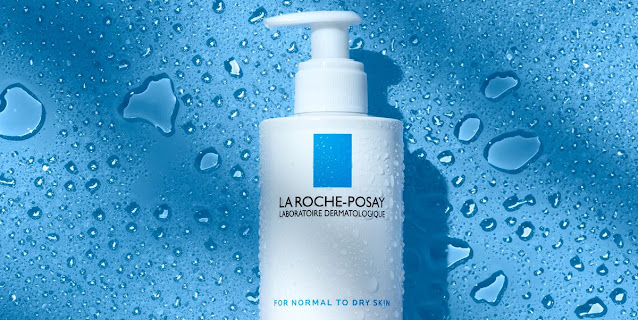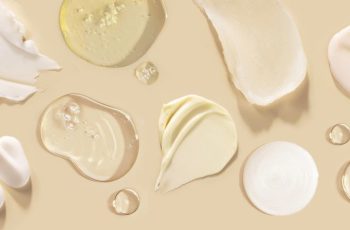
Are Peptides Better Than Retinol?
When you hear the word retinol, it’s hard to think of any other skincare ingredient that can rival this powerful potency. However, peptides have recently gained a huge amount of popularity, and many of us prefer to use a blend of these skin-repairing amino acids instead of retinol. However, the question is: Are peptides better than retinol? Let’s investigate and find out more!
Can peptides be used with retinol?
Yes, they can! Both are effective anti-wrinkle ingredients and work on the skin in similar ways. If you want to incorporate both ingredients into your daily skincare routine, it’s best to start with one or both and then add the second ingredient once your skin has built up some tolerance. Since the combination of peptides and retinol is completely harmless, it makes for an effective care routine where the powerful anti-aging benefits of retinoids fight fine lines and wrinkles, while peptides provide additional nutrients to the skin’s surface.
The main difference between peptides and retinol is the amount of research. There is a lot of knowledge about retinoids. When it comes to peptides, we’re not sure exactly how well they work for the skin. If you’re looking for a gentle anti-aging ingredient, peptides have been shown to produce the best results, especially if you’re prone to dryness and sensitivity.
If you want to learn more about peptides, you can read our blog post on what peptides are and their skincare benefits.
What do peptides do for your face?
Peptides, also known as polypeptides, occur naturally in the skin, which may explain why they’re found in a variety of skincare products. Because peptides are amino acids, they form the skin’s proteins and stimulate collagen production in the lower dermis, resulting in firmer, more youthful skin. Although peptides are found in the body, topical application is another effective way to boost collagen production, reduce the appearance of wrinkles, and improve the skin barrier.
Is there anything better than retinol?
Yes and no, when it comes to skincare ingredients that really make a difference, you’d be hard-pressed to find one more effective than retinol. The problem you may be running into is that since retinol is one of the most effective skincare ingredients, it often leads to common side effects like severe dryness, flaking, redness, and irritation. As a result, many people with sensitive and dry skin find retinoids too harsh on their skin and turn to retinol alternatives, with bakuchiol being the most common. This vegan, natural anti-aging ingredient has the same powerful benefits as retinol, but without the drying side effects.
We have a detailed blog post on Bakuchiol on our blog, check that out for more information.
What shouldn’t peptides be used with?
It is often believed that using peptides with acids like AHAs and BHAs causes the strong acids to break the peptides’ bonds, rendering them useless. Low pH acids can pose a risk of skin oxidation if the wrong peptide and acid combination is used. However, this doesn’t mean you can’t use acids and peptides in the same skincare routine, you just need to use them at different times of the day. If you want my advice, I recommend using peptides in the morning and acids in your evening routine.
Do peptides have anti-aging effects?
Yes, they do. As I mentioned before, peptides still deliver significant and effective results because of what they do to the skin. This is because peptides are made up of short chains of amino acids, which make up the proteins in the skin. They can penetrate the surface of the skin and communicate with the cells in the underlying skin, telling them to boost collagen production. Collagen production makes the surface of the skin appear firmer, smoother, and more youthful looking.
Which came first, peptides or retinol?
You should apply retinol to your skin first, as this speeds up skin cell turnover, leaving you with a fresher, more vibrant complexion. Applying a peptide-rich serum or moisturizer on top not only nourishes the skin, but also enhances its anti-aging benefits.
Building up skin tolerance is important, so using peptides and retinol together should be a slow process. Using these two powerful duos together can improve overall skin while minimizing side effects.
When should I use peptides?
You should consider using peptides if you notice:
Fine lines and wrinkles on the surface of your skin
Weak skin barrier that is easily damaged
Dehydrated and dry skin
Inflammatory episodes
Peptides work in three main ways: signaling peptides, carrier peptides, and peptides containing neural signals. Each of these categories acts as a bilingual messenger, instructing skin cells to boost collagen production, thereby increasing skin firmness. Here are some examples of the top skin care benefits you can expect when incorporating peptides into your routine.
Benefits of Peptides for Skin Care
Strengthen the Skin Barrier – The skin can protect itself from free radicals by improving its skin barrier.
Increase Collagen Production – The cell communication benefits of peptides can increase collagen production.
Retain Hydration – As we age, we tend to become more dehydrated, which can often make the skin look older than it actually is.
Contain Anti-Inflammatory Properties – Peptides are rich in antioxidants that can soothe and calm the skin during inflammation.
Now that you know a little more about peptides and retinol, you can find out which one is better. Luckily for all of us, they are both great for skin and offer the best results for younger, healthier, and happier skin. Don’t forget to follow us on Instagram if you have any questions.


